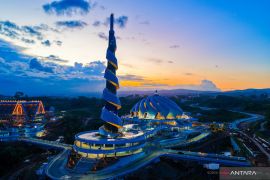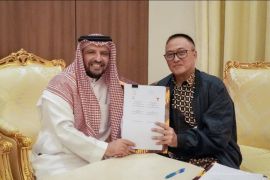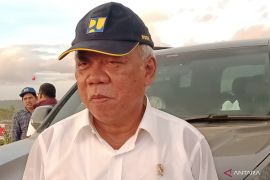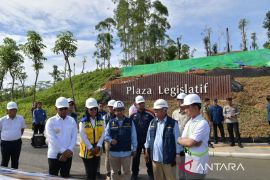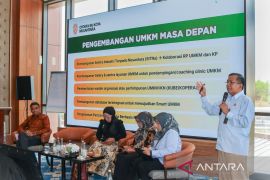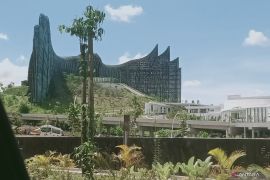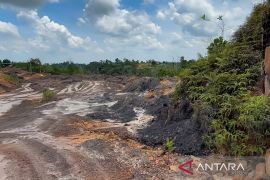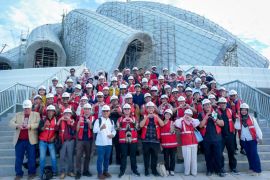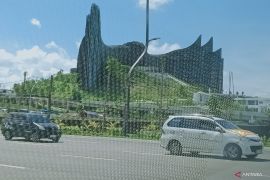Susantono emphasized that Indonesia's new capital will not only be a green city but will also be a model for sustainable future, that can be seen from the ambitious target of becoming a city with net zero emissions, a condition where carbon producedDubai, UEA (ANTARA) - Nusantara Capital Authority (OIKN) officially launched the Roadmap to a Zero Carbon Emission City of Nusantara Regionally and Locally Determined Contribution (RLDC) during the 28th Conference of the Parties (COP28) of the UN Climate Change Framework Convention.
"For us in Indonesia, this is a historic moment because this is the first time a city in Indonesia has had RLDC, Regionally and Locally Determined Contribution," said Head of OIKN Bambang Susantono at the launch at the ADB COP28 Pavilion in Dubai, United Arab Emirates, Sunday.
OIKN, continued Susantono, is proud to announce Nusantara's Net Zero Emission Strategy, a document that shows the city's commitment to taking part in global efforts to accelerate climate action.
In his remarks, Susantono emphasized that Indonesia's new capital will not only be a green city but will also be a model for sustainable future, that can be seen from the ambitious target of becoming a city with net zero emissions, a condition where carbon produced is equal to the storage capacity or even less than that.
Several steps that will be taken include a massive reforestation process, rejuvenation and maintaining the ecology at Nusantara. One of them is by converting 65 percent of areas at Nusantara, which majority covered with monoculture plants, into beautiful tropical forests.
Meanwhile, urban areas will utilize technology to ensure efficient management of natural resources while implementing innovative nature-based solutions.
For example, making the Nusantara as sponge city, ensuring water availability, reducing the danger of flood, and preserving the ecology.
The steps is in accordance with Indonesia's target to reduce emissions by 2060.
"In collaboration with various stakeholders, the Nusantara Capital Authority is preparing our steps to transform our ambitious targets into specific and measurable actions," emphasized Susantono.
The Nusantara RLDC road map itself focuses on five sectors, namely forestry and other land use (FOLU), energy, agriculture, waste management and industry.
It contains a target to reduce emissions to -1.1 million tonnes of carbon dioxide (MtCO2) by 2045 and a more ambitious target stated in the second scenario is that emissions can be reduced further to -1.6 MtCO2.
Related news: OIKN, Pertamina NRE team up for sustainable NEBS
Related news: COP28: Indonesia committed to achieving NZE target sooner than 2060
Translator: Prisca Triferna Violetta, Cindy Frishanti Octavia
Editor: Arie Novarina
Copyright © ANTARA 2023


